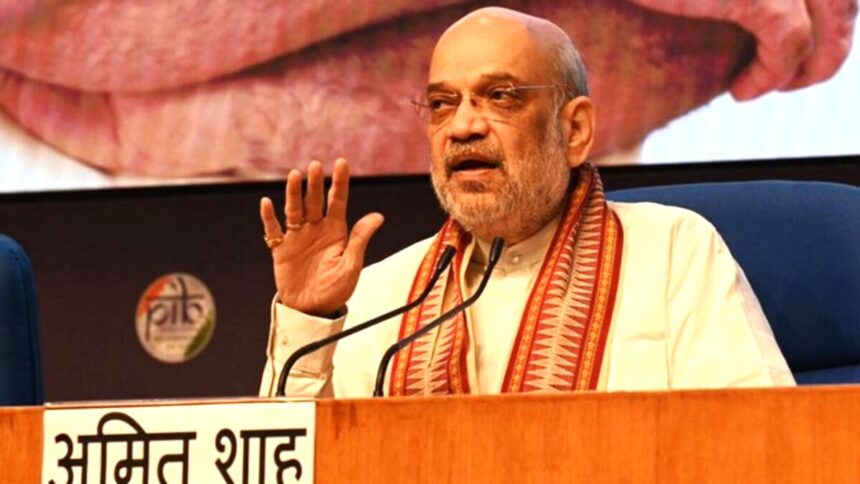In a significant move towards national security, the Indian government, led by Prime Minister Narendra Modi, has officially designated Hizb-Ut-Tahrir (HuT) as a terrorist organization. This announcement was made by Union Home Minister Amit Shah on Thursday, underlining the government’s ongoing commitment to a zero-tolerance policy against terrorism.
The Government’s Stance on Terrorism
In a post on the social media platform X, Amit Shah emphasized the government’s determination to combat terrorism in all its forms. He stated, “Pursuing PM Shri @narendramodi Ji’s policy of zero tolerance towards terrorism, the MHA today declared ‘Hizb-Ut-Tahrir’ as a ‘Terrorist Organisation’.” Shah elaborated on the perceived threats posed by HuT, highlighting its alleged activities aimed at radicalizing young individuals and instigating them to engage in terrorist acts.
According to Shah, the organization has been involved in “various acts of terror,” which include not only radicalization but also fundraising for terror activities, posing a substantial risk to India’s national security and sovereignty. He asserted that the Modi government is steadfast in its commitment to “secure Bharat by dealing with the forces of terror with an iron fist.”
Pursuing PM Shri @narendramodi Ji's policy of zero tolerance towards terrorism, the MHA today declared ‘Hizb-Ut-Tahrir’ as a 'Terrorist Organisation'. The outfit is involved in various acts of terror, including radicalising the gullible youths to join terrorist organisations and…
— गृहमंत्री कार्यालय, HMO India (@HMOIndia) October 10, 2024Understanding Hizb-Ut-Tahrir
Hizb-Ut-Tahrir is a global pan-Islamic group founded in Jerusalem in 1953 by Taqi al-Din al-Nabhani, a Palestinian Islamic scholar. The organization seeks to establish a caliphate governed by Islamic law and operates in over 30 countries, including the UK, US, Canada, and Australia. Its headquarters is based in Lebanon.
While HuT positions itself as a political entity advocating for a pan-Islamic state, it has faced widespread criticism for its radical ideologies and methods. The group has a history of praising attacks against Israel and its actions have led to bans in several countries, including Germany, Egypt, and the United Kingdom.
Allegations Against Hizb-Ut-Tahrir
The Ministry of Home Affairs (MHA) issued a formal notification outlining the reasons for banning Hizb-Ut-Tahrir. The notification claims that the organization aims to establish an Islamic state and caliphate worldwide, including in India, through violent means. This ambition allegedly includes the overthrow of democratically elected governments, which the MHA considers a grave threat to India’s democratic framework and internal security.
The MHA’s notification describes HuT as an organization that encourages the radicalization of youth, motivating them to join terrorist groups such as ISIS and engaging in fundraising activities to support terrorism. The organization reportedly utilizes various social media platforms and secure applications to spread its ideology and organize meetings, referred to as ‘Dawah’ meetings, to attract and influence vulnerable young individuals.
Legal Framework for the Ban
The designation of Hizb-Ut-Tahrir as a terrorist organization falls under the Unlawful Activities (Prevention) Act of 1967. This legislation was enacted to provide the government with the necessary tools to combat terrorism and associated unlawful activities effectively. According to the Act, a terrorist organization is defined as one that is listed in its First Schedule or operates under a similar name.
The recent notification specifies that HuT will be added as entry number 45 in the First Schedule of the Act, which lists organizations recognized as terrorist entities. This formal classification allows the government to take stringent actions against HuT, including arrests, surveillance, and other measures to dismantle its operations in India.
Broader Implications for National Security
The Indian government’s decision to ban Hizb-Ut-Tahrir highlights its proactive approach to counter-terrorism and national security. The designation reflects growing concerns about radicalization, particularly among the youth, and the potential threats posed by extremist organizations.
By declaring HuT a terrorist organization, the government aims to deter recruitment efforts and disrupt the networks that facilitate radicalization and funding for terror-related activities. This move is part of a broader strategy to maintain public safety and uphold the democratic values enshrined in the Indian Constitution.
The declaration of Hizb-Ut-Tahrir as a terrorist organization marks a critical step in India’s fight against terrorism. With this decision, the government seeks to reinforce its commitment to national security and safeguard its democratic institutions from extremist ideologies. As the situation continues to evolve, the government’s actions will be closely monitored to assess their effectiveness in curbing radicalization and protecting the nation from potential threats.
In a world where radical ideologies are often propagated through modern communication channels, the responsibility falls not only on the government but also on society as a whole to foster an environment that discourages extremism and promotes dialogue and understanding.
Read More: Honoring the Inspiring Legacy of Ratan Tata: A Trailblazer in Business and Philanthropy





